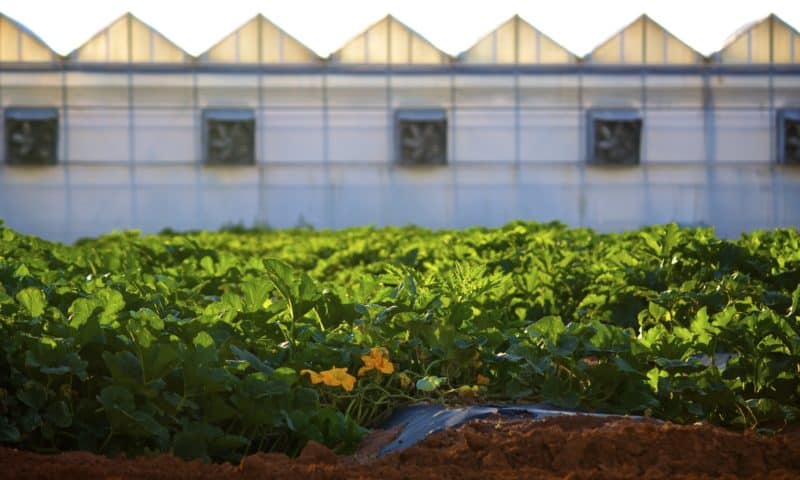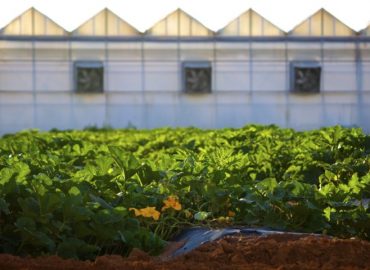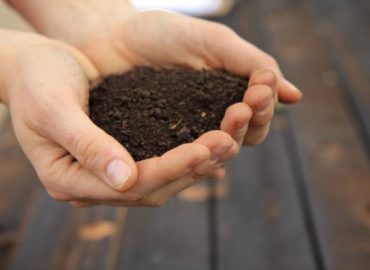Veganic Agriculture Network
Promoting plant-based farming and gardening throughout North America
Vegan Agriculture Organization
The Veganic Agriculture Network is a new movement in North America to promote the production of fruits, vegetables, legumes, and cereals without the use of artificial substances nor the use of animal products. We promote sustainable, low-impact, plant-based farming and gardening.
Following the lead of the Vegan Organic Network, which has promoted plant-based agriculture in Europe since 1996, we aim to bring more information about these techniques and principles to a North American audience.
Our mission is to
– Popularize plant-based growing techniques by showing the range of possibilities.
– Encourage farmers, gardeners and consumers to adopt veganic practices.
– Connect with farmers and organizations interested in sustainable plant-based food production.
Introduction to veganics
Veganic agriculture is an approach to growing plant foods that encompasses a respect for animals, the environment, and human health. Also known as “stockfree” “vegan organic” and “plant-based,” this is a form of agriculture that goes further than organic standards, by eliminating the use of products that are derived from confined animals and by encouraging the presence of wild native animals on the farmland.
Organic farmers are currently permitted to use animal products as fertilizers, such as manure, blood meal, bone meal, feather meal, and fish emulsion, but these animal products are often obtained from intensive farms and slaughterhouses. Not only does large-scale animal farming have a heavy impact on the environment, most modern farm animals are kept in highly confined conditions and are exposed to a variety of contaminants. Veganic agriculture breaks the link between livestock operations and the production of organic plant-foods by maintaining fertility using plant-based techniques.
Like organic agriculture, veganic doesn’t use the following products for growing plant foods:
– No pesticides (herbicides, insecticides, rodenticides, fungicides)
– No chemical fertilizers
– No genetically modified organisms (GMO)
In addition, veganic agriculture doesn’t use agricultural products that are derived from animals:
– No blood meal, bone meal, feather meal, fish meal, fish emulsion, shrimp compost
– No manure
Instead, veganic agriculture uses plant-based techniques for fertility:
– Mulch
– Vegetable compost
– Green manure
– Chipped branched wood
– Crop rotation
– Polyculture
– And all other techniques that are sustainable and don’t rely on the exploitation of animals.
Beyond that, veganic agriculture seeks to demonstrate a more sustainable way to farm, with reduced dependence on fossil fuels. As much as possible, veganic farmers produce their sources of fertility directly on the farm. The veganic maxim is that by feeding the soil, the soil will feed the plants. By adding organic plant-based materials to the soil, this produces rich living soil that is bountiful with microorganisms, which in turn feed the plants and create long-term fertility. Veganic techniques aim to replenish biodiversity of plants and animals, and veganic growers are dedicated to the care of the wild ecology that surrounds and makes up their farmland.
History
Here’s a quick look at the Veganic Agriculture Network over the years:
2004 – Veganic enthusiast Stéphane Groleau visited plant-based farms in the United Kingdom, Germany, Austria and France to learn more about the veganic agriculture movement in Europe. During this time, he became involved with the U.K.-based organization, the Vegan Organic Network, which actively promotes plant-based agriculture.
2008 – Stéphane Groleau and Meghan Kelly founded the Veganic Agriculture Network and launched the website goveganic.net to increase the visibility of plant-based agriculture in North America.
2009-2012 – Stéphane and Meghan visited veganic farms and interviewed veganic farmers across North America. They did talks about veganic growing at events in the U.S. and Canada, and continued to develop educational resources on goveganic.net.
2013 – Stéphane translated the book Permaculture: A Beginner’s Guide by veganic permaculturist Graham Burnett. The French version, La permaculture – Une brève introduction, was published in Quebec.
2014-2020 – Stéphane and Meghan continued offering talks about veganic growing at conferences in Canada and kept actively experimenting with plant-based gardening techniques.
2021 – Meghan and Stéphane launched a complementary project, Learn Veganic, where participants learn veganic gardening techniques via online courses.
Ongoing courses and workshops

Ongoing courses and workshops that teach veganic growing methods.
Workshops, courses and certificate programs
Learn Veganic – Online Courses
– www.learnveganic.com
– Online veganic courses being launched in early 2021 by the founders of the Veganic Agriculture Network
–Learn Veganic on Facebook
The Living Centre – Ontario, Canada
– www.thelivingcentre.com
– Introduction to permaculture
– Four Season Permaculture Design Course
– Varied workshops and training in permaculture, forest gardening and herbalism. Check for calendar updates, weekly series, correspondence courses, and events.
Spiralseed – United Kingdom
– www.spiralseed.co.uk
– Introductory permaculture courses and Permaculture Design Courses with teacher Graham Burnett, a veganic permaculturalist and author of the book Permaculture: A Beginner’s Guide(often in Europe and occasionally in North America).
Ecology Action – California
– www.growbiointensive.org
– Ecology Action is a research farm developing biointensive techniques
– Site visits and multi-day workshops are listed on the events page
– Information about two-month summer internships, eight-month season long internships, and the three-year apprenticeship program are listed on the training page.



